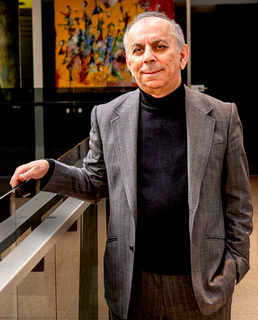“Acquiring is a developing segment of the payment system. The topic is interesting both from a scientific and practical point of view. The important role of acquiring operations in modern life makes the study of the solution for managing EFTPOS-terminal networks relevant. However, my goal is to present the big picture, the history, and the context, then to describe specific examples and systems,” says Takhmasib Dadashev.
We bring to your attention an interview about the process of writing the book, how the author makes a technical text understandable and easy to read, what is his vision of the payment solutions future.
Last year, two of your books were published in Russian and English (“Modern video security platforms in the banking industry” and “Cash Management: History and Horizons”), which have become in demand. How familiar and interesting is the topic of the future book?
I honestly have to admit, this area is new for me, which makes it especially interesting. I will have to delve into the study, examine the transactions process and ensuring security, the terminals’ functionality. I have a difficult and voluminous job ahead of me.
What are the stages of writing a book?
At first, I find out what industry conferences will be held. The slogan “Think globally, but act locally” guides me in my work. Having studied the market trends and problems, the big picture emerges, and then it usually takes at least six months to write the book. It is important to return to the beginning after the completion of one part, so that there are no logical contradictions, repetitions. Then editorial editing, translation into English, and not literal because you need to understand the meaning, concepts, and stylistic features.
How do you manage to describe high technology in an accessible language?
Probably, the experience of working as a technical writer affects. I understand that despite the complexity of the product, it is necessary to present it in such a way that it is interesting to read. Take the book about the АТМеуе.iQ solution, all the chapters of which I begin with quotes of the English writer George Orwell. In 1948, he wrote the dystopian novel “1984”, dedicated to control in a society where cameras and video surveillance are everywhere. The quotes drew parallels in time and, in the reviewers’ opinion, enlivened the description.
Who else helps with the book?
Specialists of the Penki Kontinentai Group participated in the preparation of the book. Their competence and knowledge, accumulated over 30 years of work in the field of innovative solutions and technologies for the banking sector, help to look at the problem and its solution from the inside.
How do you imagine your reader?
I hope, the book will be in demand among specialists in the field of payment solutions, bankers interested in increasing the profitability of the acquiring business. For new employees of the Penki Kontinentai Group, it will help to know the product. Creating a guide, such as a glossary of basic concepts is one of my goals.
How do you see the future of payment systems?
The future is coming now. Amazon plans to open up to 3000 cash-less supermarkets in the next few years. Visitors can take goods from the shelves and go out of the shop. Identification is carried out using cameras and sensors, allowing “recognizing” people and determining the goods that are taken from the shelves. An invoice will be sent to the Amazon account. So, mobile technologies and biometrics make payment processes more accessible and easy to use.
Thanks for the interview. Looking forward to your new book.

